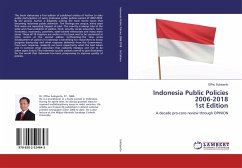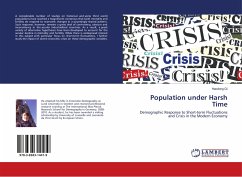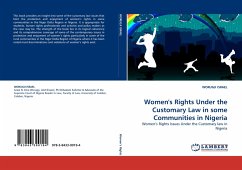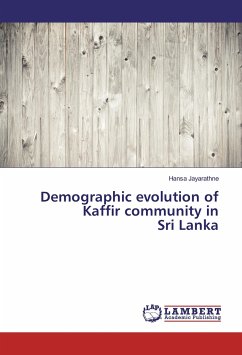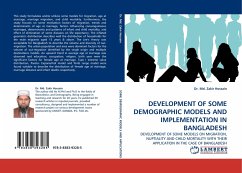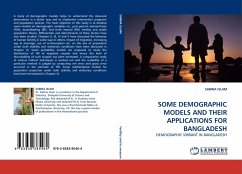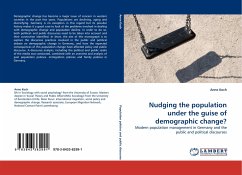
Nudging the population under the guise of demographic change?
Modern population management in Germany and the public and political discourses
Versandkostenfrei!
Versandfertig in 6-10 Tagen
39,99 €
inkl. MwSt.

PAYBACK Punkte
20 °P sammeln!
Demographic change has become a major issue of concern in western societies in the past few years. Populations are declining, aging and diversifying. Germany is no exception in this regard but its peculiar history makes it a good case to look at the problems involved in dealing with demographic change and population decline. In order to do so, both political- and public discourses need to be taken into account and their connection identified. In short, the aim of this monograph is to explore the discursive practices involved in the public and political debate on demographic change in Germany, ...
Demographic change has become a major issue of concern in western societies in the past few years. Populations are declining, aging and diversifying. Germany is no exception in this regard but its peculiar history makes it a good case to look at the problems involved in dealing with demographic change and population decline. In order to do so, both political- and public discourses need to be taken into account and their connection identified. In short, the aim of this monograph is to explore the discursive practices involved in the public and political debate on demographic change in Germany, and how the expected consequences of this population change have affected policy and public discourse. A discourse analysis, including the political and public realm of the media was conducted, combined with an overview and analysis of past population policies- immigration policies and family policies in Germany.



